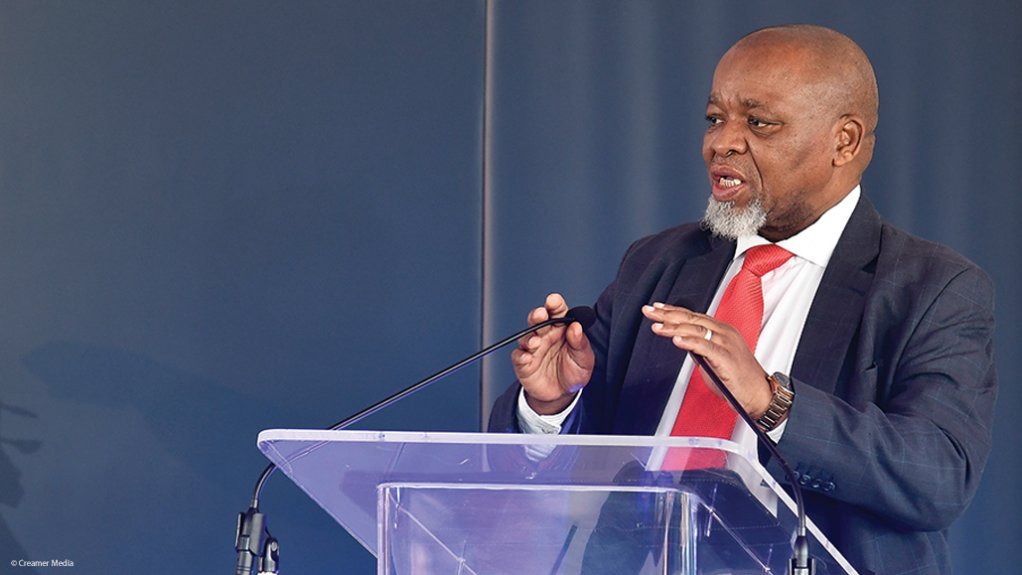Ensuring the security of the country’s energy supplies and addressing energy poverty are objectives of the South African government, Mineral and Petroleum Resources Minister Gwede Mantashe told delegates at the Africa Oil Week 2024 conference, at the Cape Town International Convention Centre, on Tuesday. He was delivering the official welcoming address.
The country needed a diverse energy supply. The government was committed to a mix of energy sources, he affirmed. Energy security was “fundamental”.
He observed that, in South Africa during the past few years, petroleum (and gas) had definitely taken second place, when it came to energy resources. The main focus had been on renewables.
However, with electricity now having been split away from his department, the importance of petroleum to the country was being realised. The country had developed a petroleum national plan and a Petroleum Bill (the parliamentary approval of which still had to be finalised).
Digressing from his topic, Mantashe expressed the opinion that South African non-governmental organisations (NGOs) should be made to divulge their funding sources. Political parties had to, and did do, he said. NGOs should do the same. That way, it would be clear if they received foreign funding. (He was clearly thinking of green NGOs, with the implication that they might be foreign agents.)
He asserted that oil and gas were critical for the development of South Africa. He was confident that developing the country’s oil and gas resources could boost the country’s economic growth rate to 5%, even 8%.
New, cleaner technologies had to be proven before they could be implemented. Oil and coal couldn’t just be switched off, he argued.
Turning to the question of oil and gas resources, he expressed the hope that the major discoveries off the coast of Namibia would extend south, into South African waters. He gave the assurance that the South African government wanted oil exploration in the country’s waters. “That oil is really needed by us, as a country,” he stated. Indeed, there was a need to accelerate oil and gas exploration in South African waters.
Regarding France-based multinational energy major TotalEnergies’ withdrawal from South African offshore exploration projects, he highlighted that the company was not withdrawing from South Africa, that it was not withdrawing from offshore exploration in South Africa, but that it was exiting from particular offshore projects in South Africa. He also pointed out that other South African offshore oil and gas exploration projects were currently being developed.
He further highlighted the country’s substantial shale gas potential onshore, in the Karoo basin. Geophysical exploration would be conducted across the region.
With other companies exiting the South African refining sector, that also created opportunities for new investors in the country’s downstream sector, he noted.
Mantashe emphasised that the government fully understood that oil and gas companies needed to make profits and achieve returns on investment. “It’s not our aim to cut the profits,” he assured. “Our aim is development.” Investors had to be aware of that. “I want to see black capitalists emerging out of the system.” Nor could the workers be disregarded. “Workers are part of the development of energy projects.”
Meanwhile, to make life more affordable for South Africans, the government had started talks to bring down the country’s administered prices. These included the fuel prices, which were distorted by having non-fuel costs added to them.
Edited by: Creamer Media Reporter
EMAIL THIS ARTICLE SAVE THIS ARTICLE
ARTICLE ENQUIRY
To subscribe email subscriptions@creamermedia.co.za or click here
To advertise email advertising@creamermedia.co.za or click here













